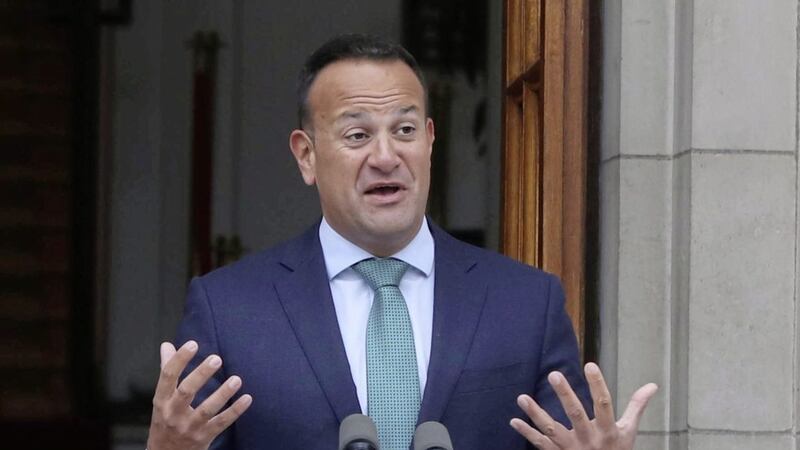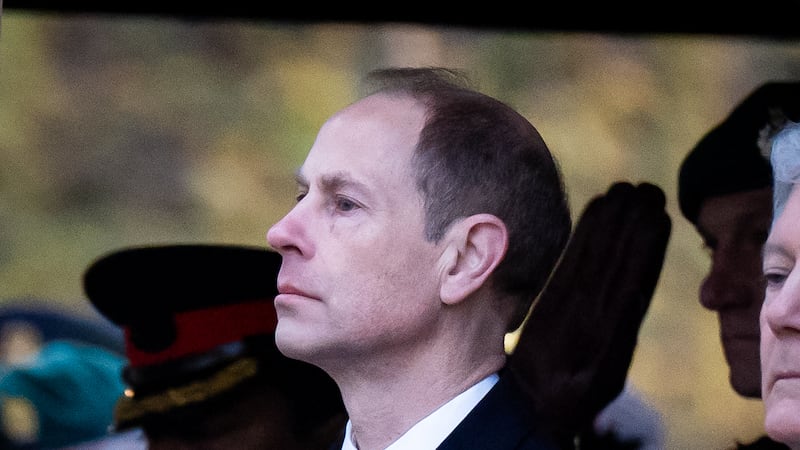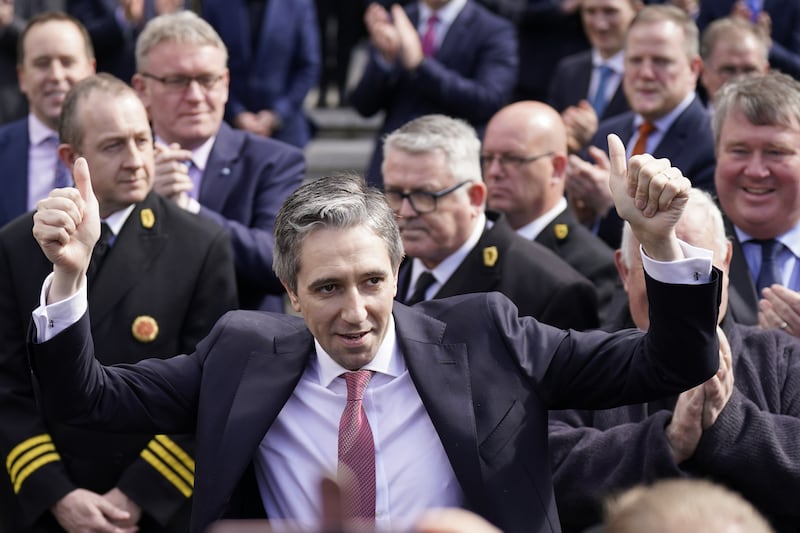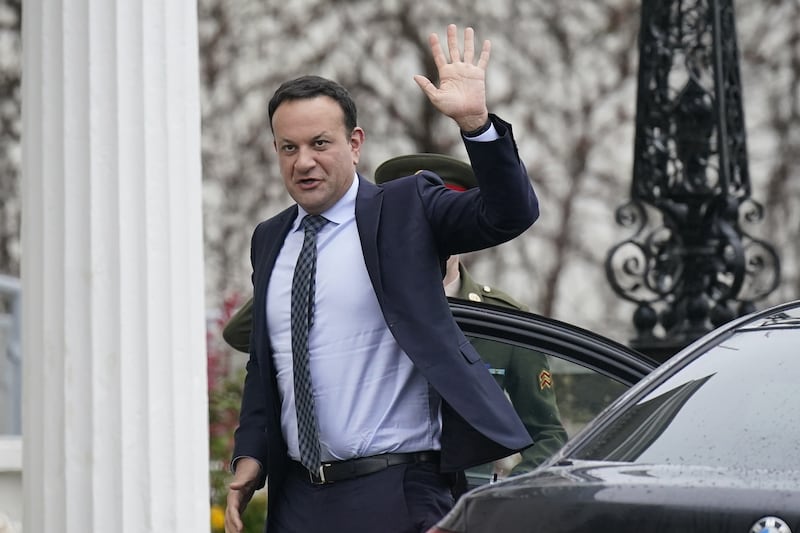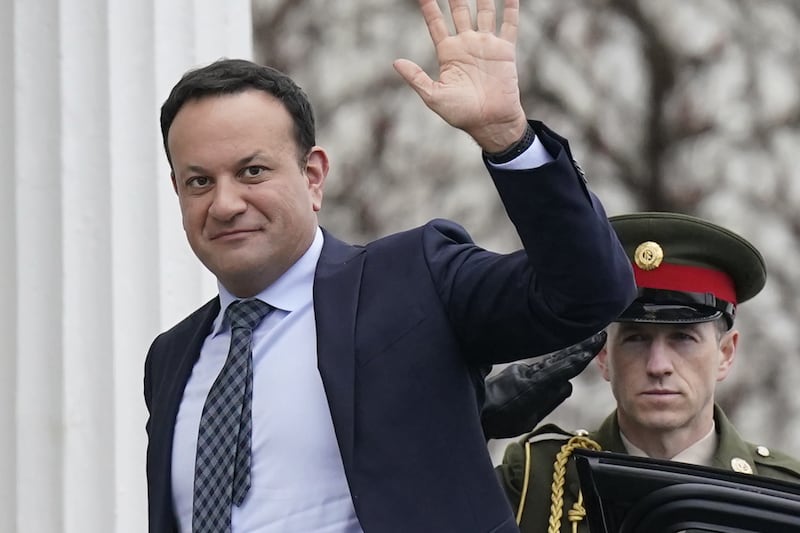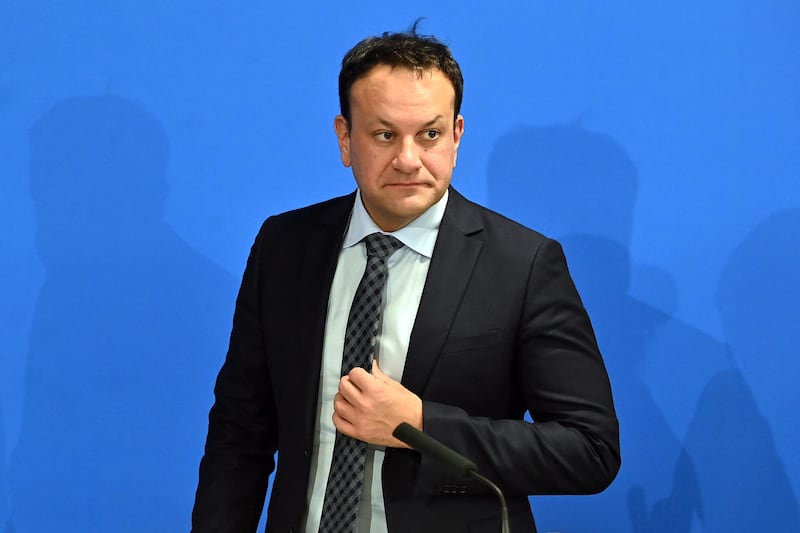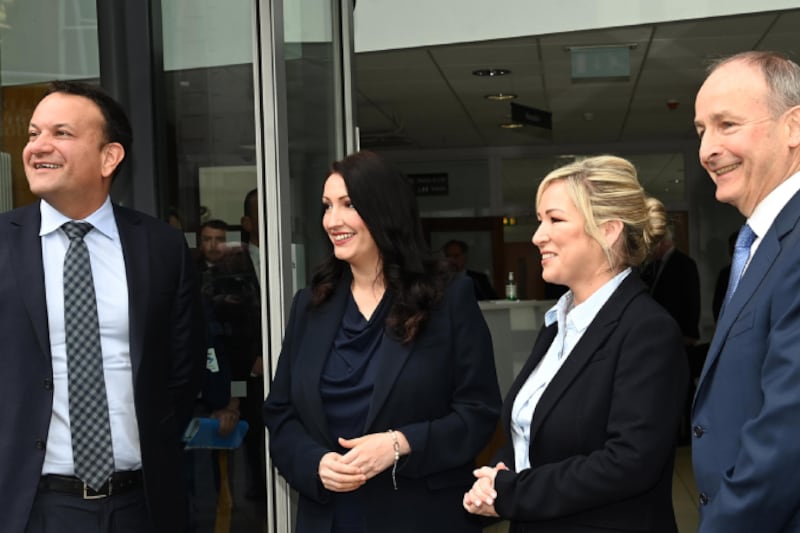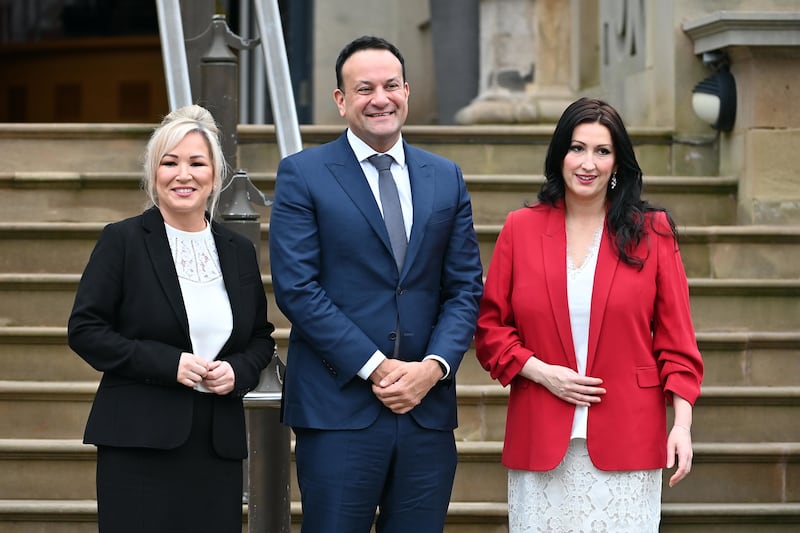Ireland will not support any Brexit deal which would let a Stormont minority veto the wishes of a majority in Northern Ireland, both the Taoiseach and his deputy have said.
Leo Varadkar said Boris Johnson's Brexit plans "fall short in a number of aspects".
On the issue of the proposed Stormont veto on new regulatory arrangements, he said no one party should be able to block the majority view on the island.
"Any consent mechanism and democracy mechanism must reflect the views of the majority of people in Ireland and Northern Ireland," said the Taoiseach.
On a visit to Sweden, Mr Varadkar said he could not fully understand how the UK envisages Northern Ireland and Ireland operating under different customs regimes without the need for customs posts.
Simon Coveney, the Tánaiste, said Johnson's proposal for customs checks on the island presented a "real problem".
Mr Coveney said that, while the plan tabled by the Prime Minister did not provide the basis for a final agreement with the EU, it did represent "progress" and could potentially be a "stepping stone" towards a resolution.
Mr Johnson wants to give the currently defunct Northern Ireland Assembly a vote on whether to opt in to his proposed all-island regulatory system post-Brexit, and also give the devolved legislature a say on whether it wants to continue the arrangement after an initial four-year period.
A contentious Stormont voting mechanism - called the petition of concern - means a bloc of Assembly Members from either the nationalist or the unionist community can veto certain decisions, even if a majority of MLAs back them.
Addressing the Dail parliament in Dublin, Mr Coveney said: "We cannot support any proposal that suggests that one party or indeed a minority in Northern Ireland could make the decision for the majority in terms of how these proposals would be implemented in the future.
"That is not consistent with the Good Friday Agreement. It is not something we could possibly support as part of any final deal."
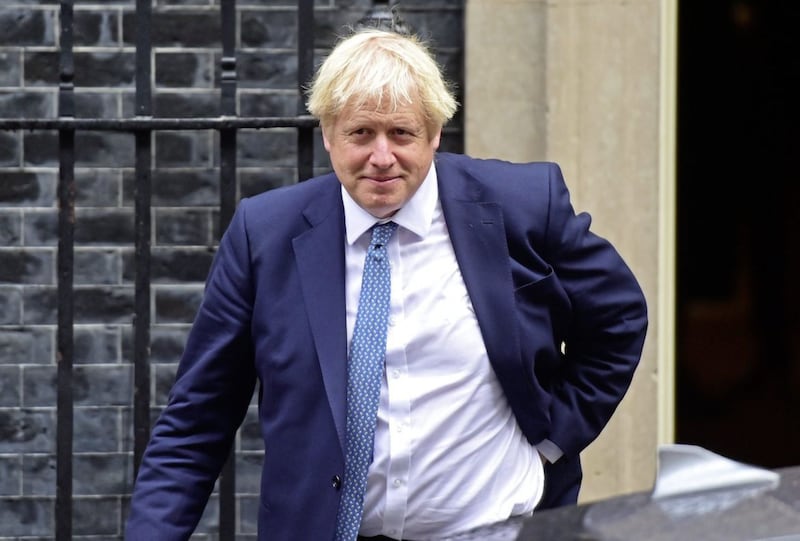
Mr Coveney said the proposal for full regulatory alignment for goods and agri-food products was consistent with the backstop.
But he said it would not work if a Stormont minority could veto it.
"We cannot support any proposal that essentially suggests that a minority can determine what the majority have to live with, it's just not going to work," he said.
"And if that is the proposal, I believe it would be very, very difficult to get an Executive up and running.
"Why would other parties buy into an Executive if they believe that Executive could essentially prevent solutions linked to Brexit?"
He added: "There is no point in having a whole series of proposals, even if those proposals make sense and work, if they can essentially be vetoed by a minority or one party in Northern Ireland to the frustration of the majority."
Mr Coveney also said the proposal for Northern Ireland to operate under a different customs regime from Ireland presented "legal and technical" problems.
"Despite this paper saying they want to avoid customs checks, they do raise the prospect of customs checks somewhere, not just in premises and businesses, and we think that's going to be a real problem," he said.
The Tanaiste said that would potentially undermine the commitment for no border infrastructure.
Mr Coveney said he believed Mr Johnson wants a deal, but he said people have a right to be sceptical, suggesting Ireland has not been treated well by the UK to date.
"I believe the British Government want to get a deal but I would certainly forgive anybody for being sceptical," he said.
"Ireland has not been treated well at different periods during these negotiations because the policy and the proposals and the approach of the UK has shifted towards Ireland at different times.
"But, that being said, we need to work with the negotiating team that is there in front of us, that's what we are doing.
"There is a serious proposal now on the table, it won't be the basis of final agreement but I hope it can be a stepping stone in that direction."
He said there was a need for "honesty" in terms of what was possible in a final deal.
"If that is the final proposal there will be no deal, there are a number of fundamental problems with that proposal," he said.
He added: "There are elements of this proposal that simply will not be part of any deal."
But Mr Coveney said the plan did represent progress and that Ireland and EU are taking it "seriously".
"We need to recognise progress because it's difficult to find progress at the moment," he said.
